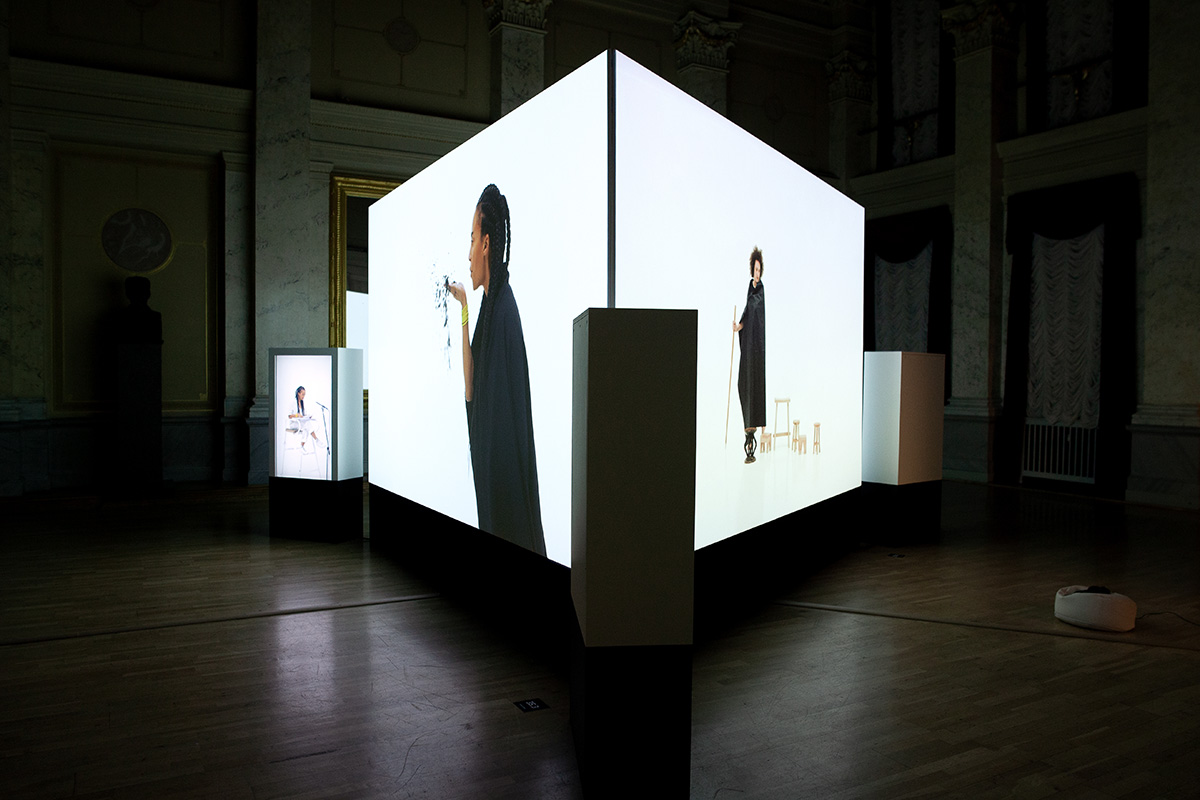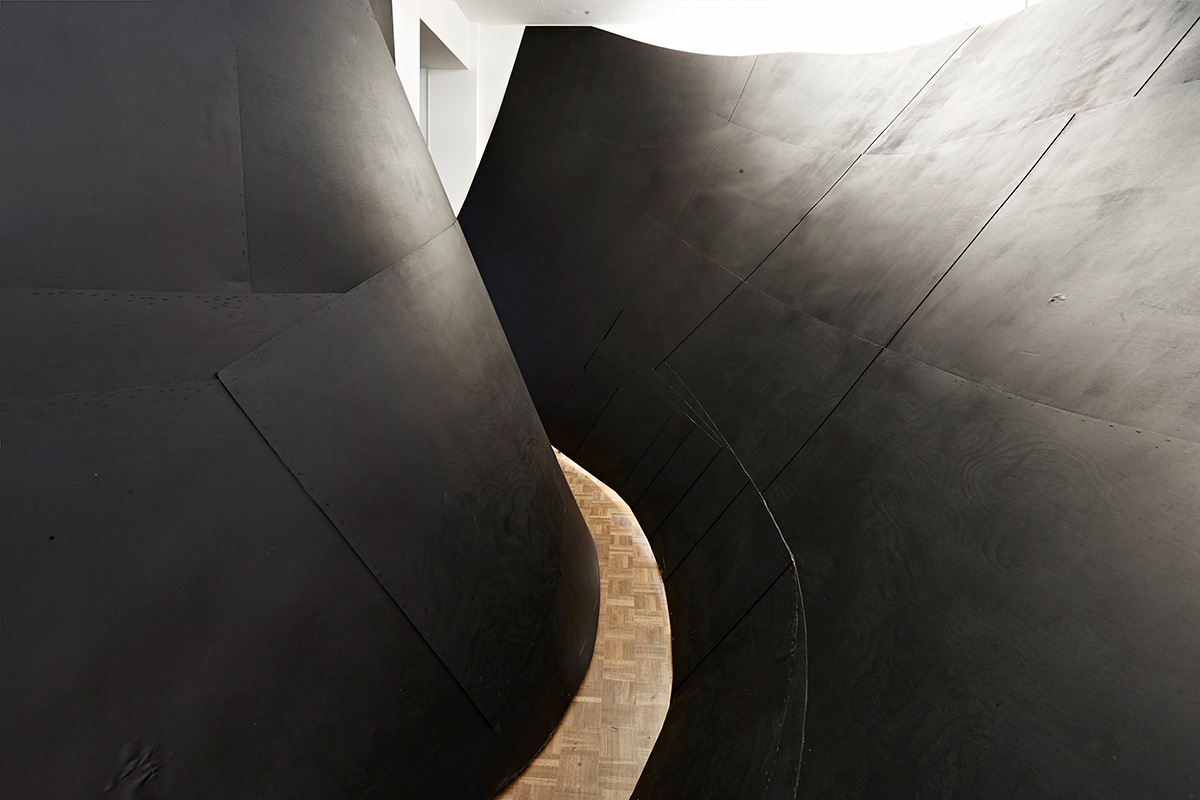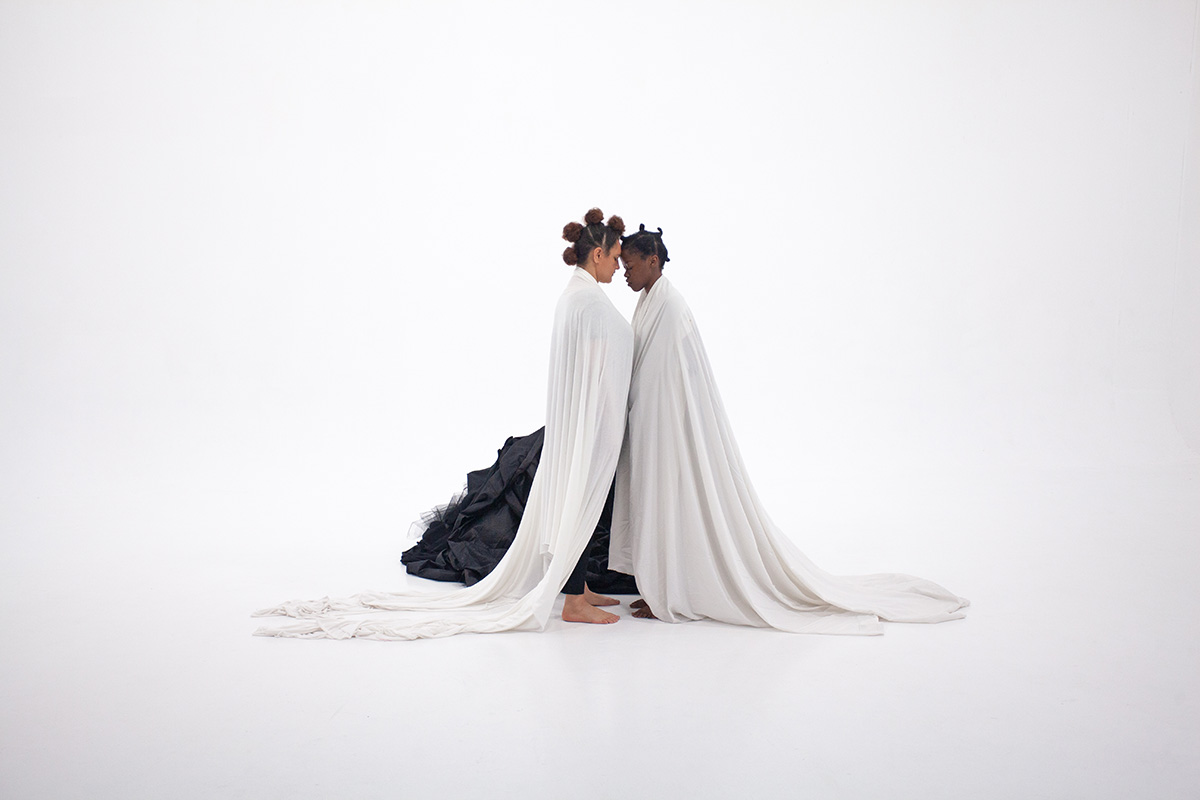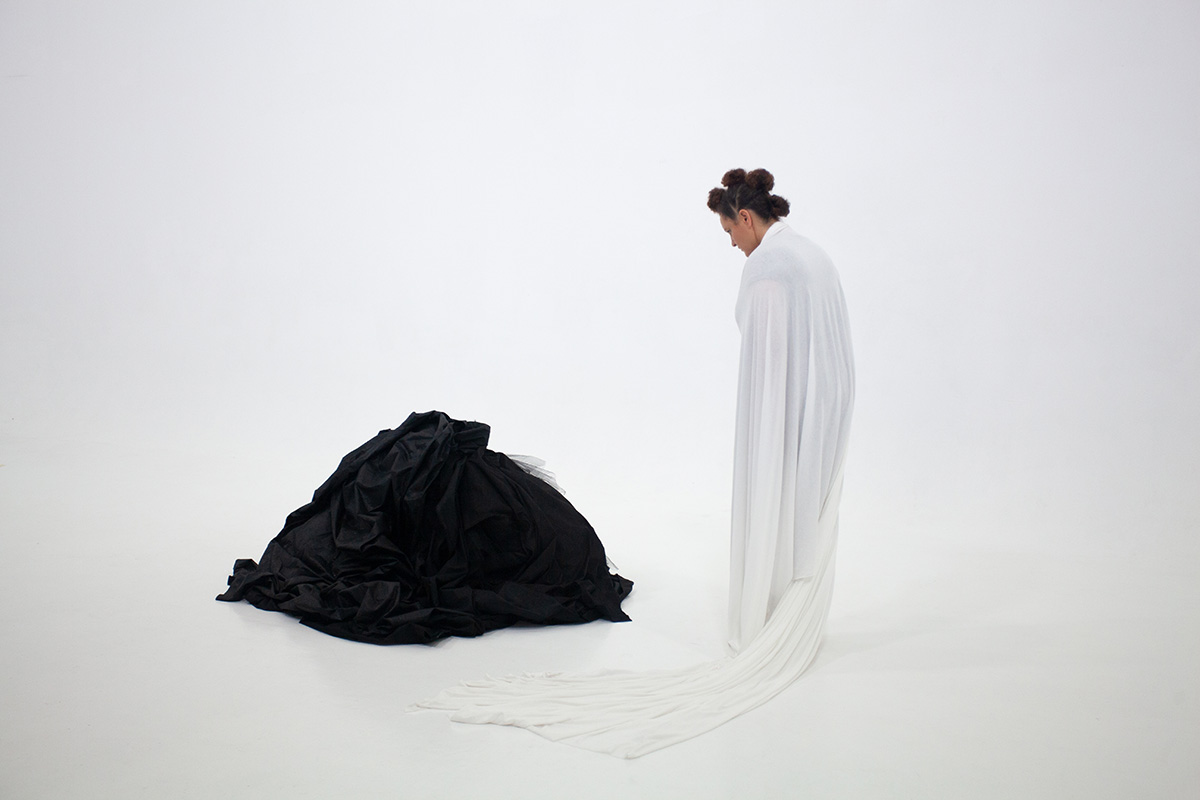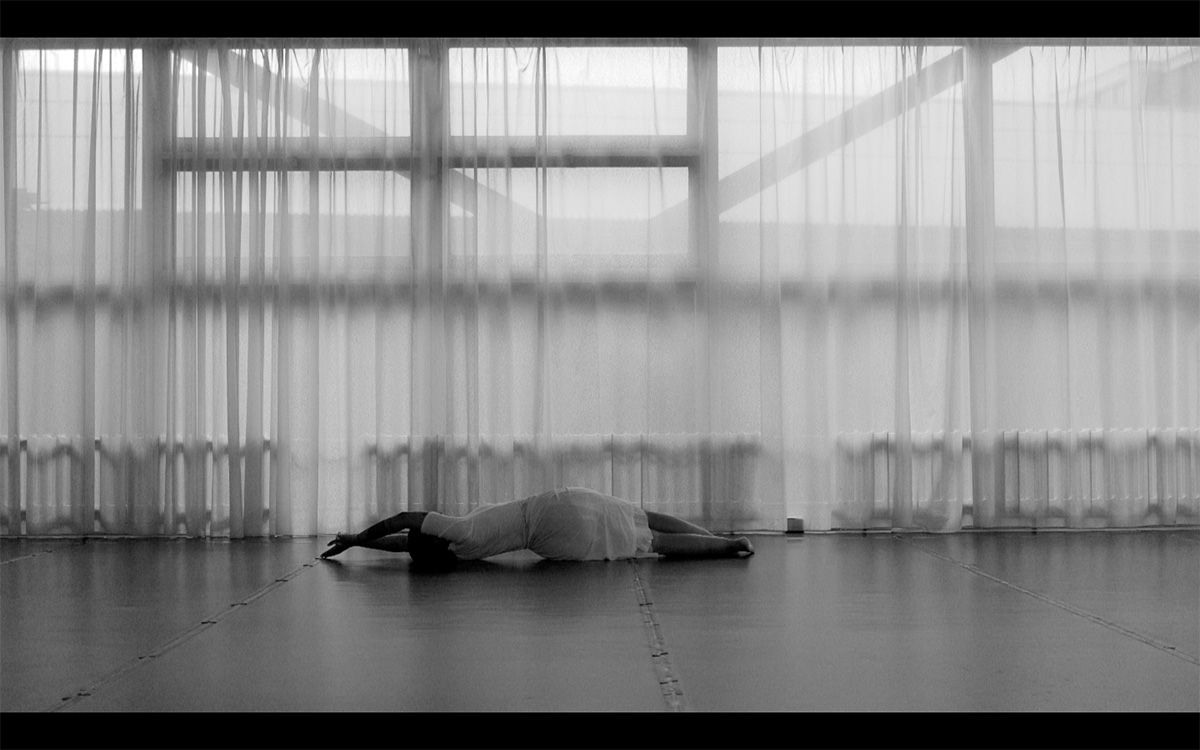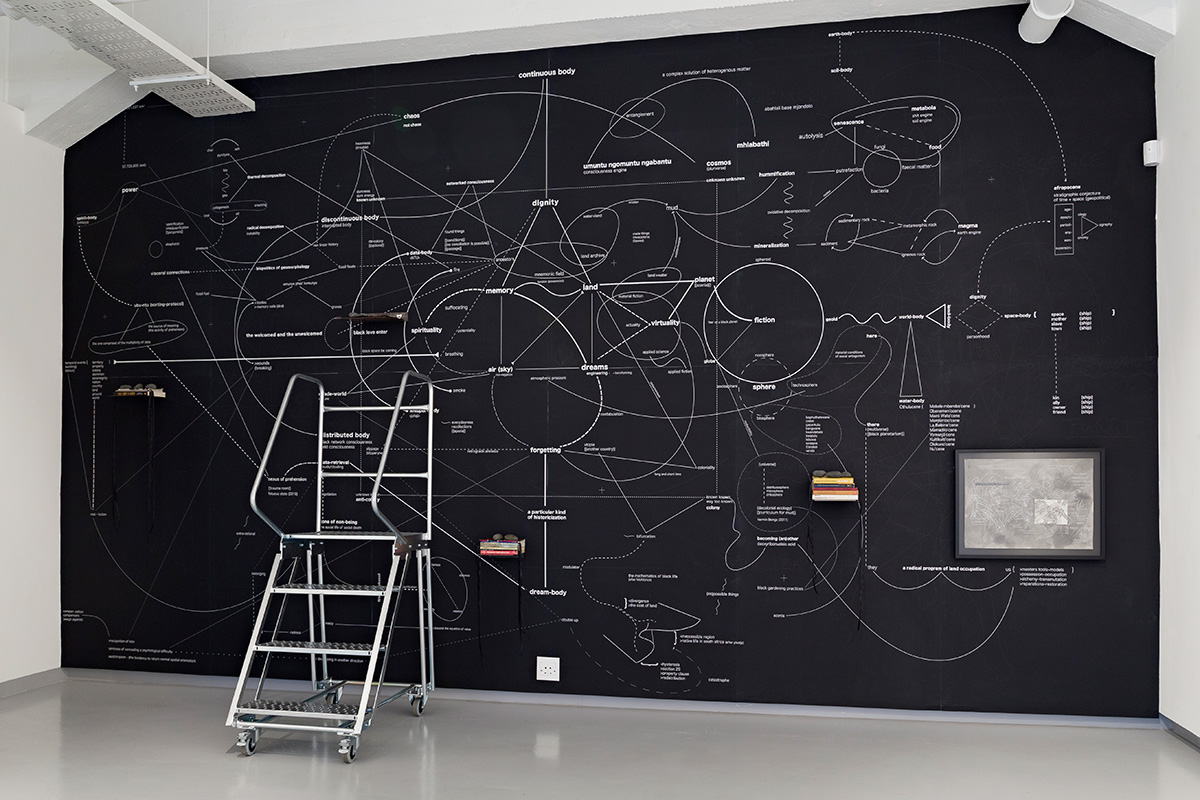PRESENTATION: Ubuntu-A Lucid Dream, Part II
 The word Ubuntu is derived from a Nguni (isiZulu) aphorism “Umuntu Ngumuntu Ngabantu”, which can be translated as “a person is a person because of or through others”. Ubuntu can be described as the capacity in an African culture to express compassion, reciprocity, dignity, humanity and mutuality in the interests of building and maintaining communities with justice and mutual caring (Part I).
The word Ubuntu is derived from a Nguni (isiZulu) aphorism “Umuntu Ngumuntu Ngabantu”, which can be translated as “a person is a person because of or through others”. Ubuntu can be described as the capacity in an African culture to express compassion, reciprocity, dignity, humanity and mutuality in the interests of building and maintaining communities with justice and mutual caring (Part I).
By Efi Michalarou
Photo: Palais de Tokyo Archive
The exhibition “Ubuntu, a lucid dream” invites us to enter Ubuntu, an as yet undiscovered space within our imagination and our bodies of knowledge. The call for a “humanity in reciprocity” that is embedded within Ubuntu thinking constitutes an essential but widely misunderstood notion of African philosophy. In both its philosophical and spiritual dimensions, Ubuntu can be considered as one of the few characteristics of African societies to have survived the six hundred years of slavery, colonialism and imperialism, phenomena that have otherwise destabilized the continent’s societies and undermined traditional undermined traditional frameworks of knowledge transmission. Found in numerous African languages and cultures, Ubuntu thought persists in the conception of the place of the individual within the community, as well as in the links between different peoples. It structures a conscience and a vision of the world based on interdependence of relation . Ubuntu was also a vital notion for the ideas of the liberation movements and the post-colonial experiments that proliferated across Africa in the 1960s, fueling hopes for an African socialism or a political Pan-Africanism. It sprang from the literary and poetic production of the content and of its diasporas, from authors such as Aimé Césaire Vumbi-Yoka Mudimbé, Edouard Glissant, Alain Mabanckou, Yanick Lahens and Léonora Miano – to name only a few francophone writers amongst many others. Musicians Fela Kuti and Mariam Makeba were also legendary spokespersons of this philosophy of unity through encounter. Because it symbolizes the bonds forged between all people, Ubuntu was used and largely popularized by Nelson Mandela to foster a vision of an ideal society that could be opposed to the segregation of the apartheid era in South Africa, and later to promote national reconciliation. Contemporary realities unfortunately confront us with the defeat, on many fronts, of the spirit of Ubuntu, between political failings, deadly conflicts, and multiple forms of violence that target women and LGBTQI+ people in particular. And yet this philosophy is actually being reinvested by intellectuals, activists and producers in all fields of contemporary creation through new dynamics where various lines of thought and different imaginaries are being reassembled accross all continents. In a world that is more uncertain than ever, at loss of meaning, riven by sectarianism and violence, this philosophy is no more an abstract ideal than it was in the 1960s. Ubuntu and its dual question “making humanity together and together inhabiting the earth”, to quote philosopher Souleyman Bachir Diagne, emerges once again at the heart of social, political, economic, cultural and ecological demands and debates. This exhibition embraces these dynamics for the recomposition of the world poepled with lucid dreams, by bringing together artists whose works enter into resonance with Ubuntu philosophy and who seek to approach this body of thought around action and relations as a resource, as a space of intervention, as a fiction or as a mediation of the real world. Imagined as a polyphonic space, the exhibition allows for artists to weave subtle ties between form and ideas, drawing on multiple subjects, perspectives and positions. The call for a “disenclosure of the world and humanity’s ascent” opens fixed and reductive conceptions of identity up to new critiques as well as to a deconstruction of univocal historical narratives and the western concept of modernity, attesting to the desire of artists to represent spaces of ideological rupture. By shedding light upon some of the most urgent questions of our age, such as unequal distribution of wealth and power, migration and border crises, the colonization of land and bodies, situations of oppression and the transformation of our relationship to nature – they contribute to an emancipation process whilst at the same time calling forth a spirit of resistance. This exhibition seeks to bring together artists to share critical points of view and perspectives. These creators bring to their work all of the cultures that they inhabit and draw on experiences – often dual, at times painful – of migration transfer. The exhibition seeks to bypass such geographic enclosures and consider one space alone: that of the reflections and ideas proposed by the artists through subjective narratives and works that have the potential to transform our imaginaries and contribute to a new form of understanding of the world. The exhibition aims to be “Ubuntu” in that it looks to transform artistic creation into a shared expression through the possibility of an “in-common”. At the heart of the exhibition, a vast space dedicated to a project by artist Kudzanai Chiurai opens further dimensions of exchange, discovery, and knowledge production, be they discursive, performative or musical, which are constructed on a shared stage of collective engagement.
Participating Artists: Jonathas De Andrade, Joël Andrianomearisoa, Michael Armitage, Bili Bidjocka, Kudzanai Chiurai, in collaboration with Khanya Mashabela featuring Kenzhero, Nolan Oswald Dennis, Frances Goodman, Lungiswa Gqunta, Kudzanai-Violet Hwami, Richard Kennedy, Grada Kilomba, Turiya Magadlela, Ibrahim Mahama, Sabelo Mlangeni, Meleko Mokgosi, Serge Alain Nitegeka, Daniel Otero Torres.
Photo: Turiya Magadlela, Mashadi would say it goes on and on and on…, from the series Four Five, 2019, Cotton and nylon tights, variable dimensions, Courtesy the artist, Durban Art Gallery, Simplewear, Kgosientle Trading and Projects & the permanent collection of Durban Art Gallery, Photo: Sahir Ugur Eren
Info: Curator: Marie-Ann Yemsi, Palais de Tokyo, 13 Av. du Président Wilson, Paris, France, Duration: 26/11/2021-20/2/2022, Days & Hours: Daily 12:00-24:00, www.palaisdetokyo.com
